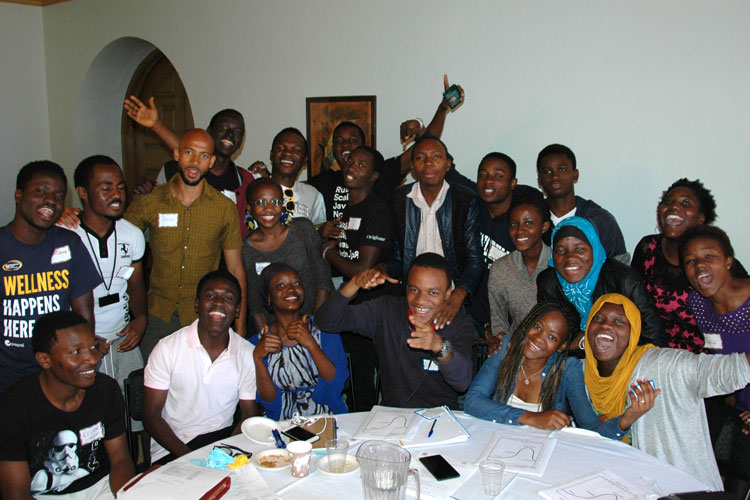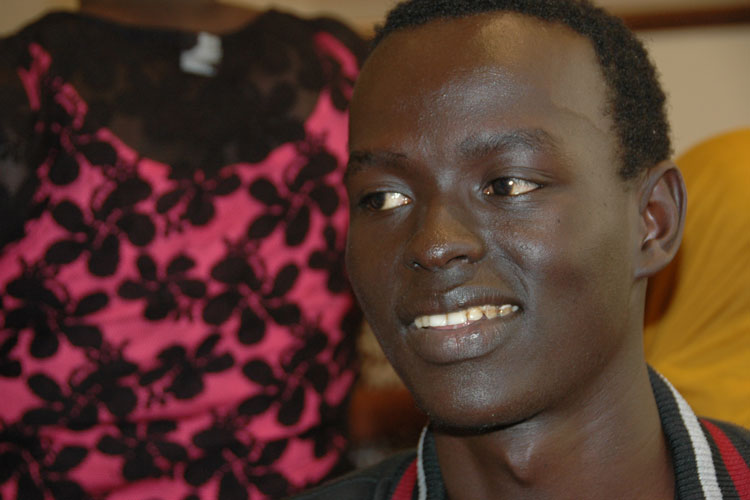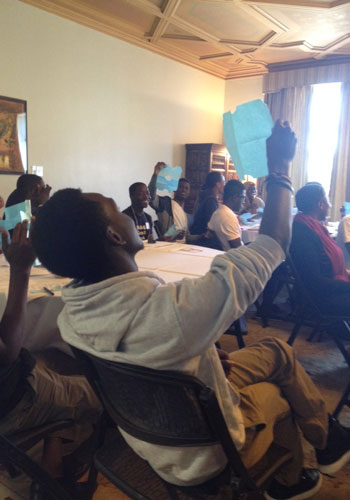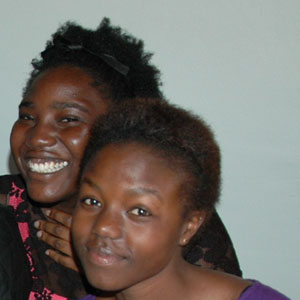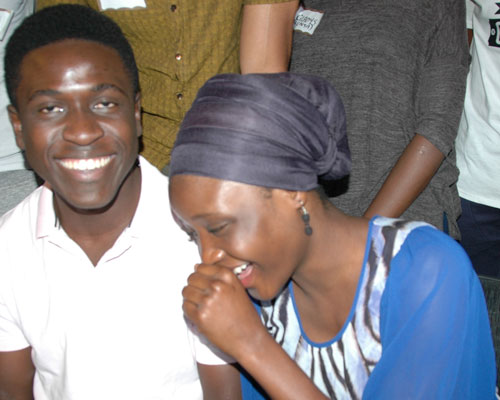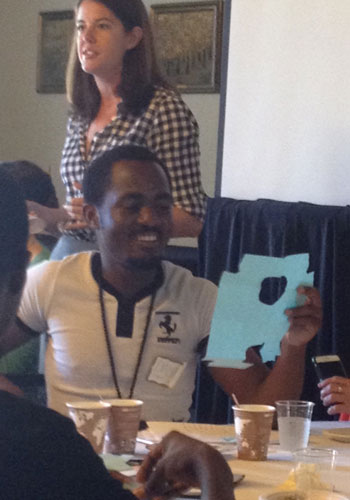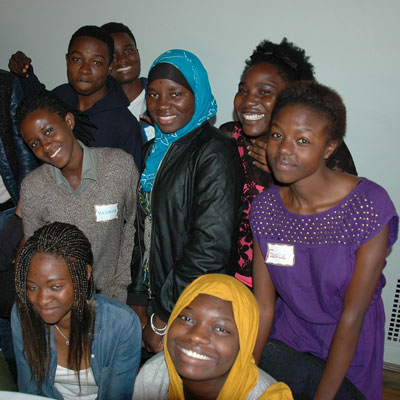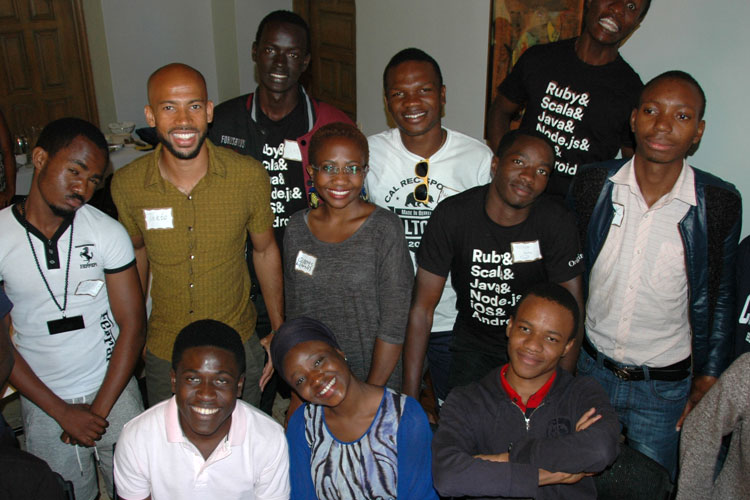Africa’s bright young scholars take on Berkeley
Two dozen students from 10 nations, here on a full-ride scholarship, want to have an impact back home. 'I want to be a pioneer,' says one, who plans to study bioengineering so she can help advance medical research and practice in her homeland, Kenya
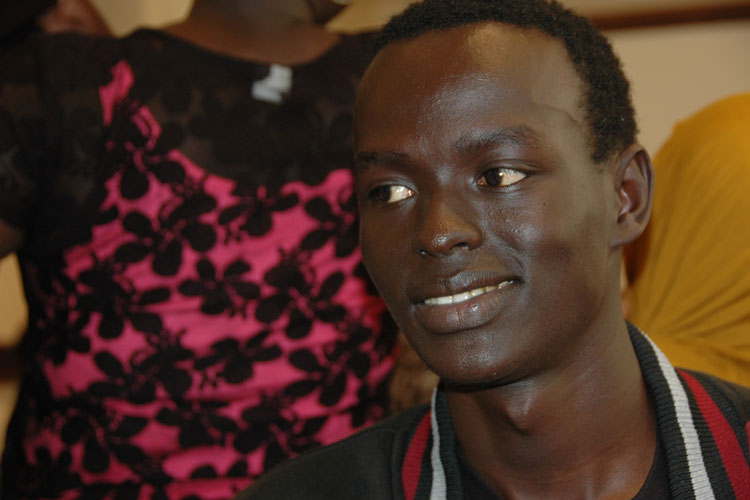
August 27, 2015
First comes the honeymoon, then the culture shock, followed by an adjustment period and finally mastery. That’s the “U-Curve” trajectory typically experienced by international students, according to the Berkeley International Office. But for UC Berkeley’s two-dozen new MasterCard Foundation scholars from Sub-Saharan Africa, many of whom have survived civil wars and other obstacles to get here, the transition so far has been shwari (smooth in Swahili).
Chosen for their academic prowess, give-back ethos and financial disadvantage, Berkeley’s 2015 crop of MasterCard Foundation scholars hail from Nigeria, Kenya, Ghana, Zimbabwe, Zambia, Senegal, Togo, Burkina Faso, Botswana and South Sudan.
Sure, they may miss their families, get sick of eating dining-commons food, stress out during midterms and finals and grow tired of explaining that Africa is not a country. But they say none of that eclipses this once-in-a-lifetime opportunity of a free-ride scholarship at Berkeley to experience new things, gain expertise and bring it home.
“I want to be a pioneer,” says Fanice Mangoja Nyatigo, 19, of Nairobi, Kenya, who plans to study bioengineering so she can help advance medical research and practice in her homeland.
UC Berkeley is one of six U.S. universities and 21 global partners in the MasterCard Foundation Scholars Program, a $500 million education initiative launched in 2012 that funds the education of some 15,000 young people primarily from Sub-Saharan Africa. The program is expected to bring more than 100 African undergraduate and graduate students to Berkeley. The other participating universities are Stanford, Arizona State, Michigan State, Duke University and Wellesley College.
The fast-growing African continent is home to at least 1 billion people, two-thirds of whom are college-age or younger. But the demand for places at colleges in Africa far exceeds the supply, spurring hundreds of thousands of young Africans to seek higher education overseas.
Projects like the MasterCard Foundation Scholars Program allow for the best and brightest who lack the financial means for overseas study to come to a top university like Berkeley, then return to their homeland to use what they’ve learned to make positive impacts in their communities as leaders, says Martha Saavedra, associate director of the Center for African Studies, which administers the program at UC Berkeley.
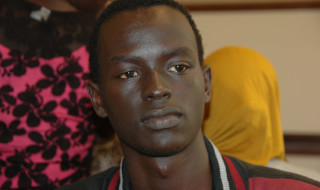
For Akol Kuan, 21, Berkeley is a far cry from life in a refugee camp in Kenya (Photo by Yasmin Anwar)
Among this year’s scholars is Akol Kuan, 21, who applied for the MasterCard Foundation scholarship while at high school in a refugee camp in Kenya. His family fled South Sudan, which became an independent state in 2011 following decades of civil war and is currently ravaged by inter-ethnic warfare.
He is one of 20 siblings and a first-generation college-goer, which puts him under significant pressure. But he says he can handle it.
“So much is expected of me, but I will find a balance because you don’t perform well when you take on too much,” he says,
Kuan plans to major in civil engineering and get involved in club soccer and environmental conservation. He’d also like to hone his public speaking skills. As for the big picture, he wants to start an NGO to build South Sudan’s infrastructure from the ground up.
“Investing in South Sudan needs to happen, and the government is not doing it,” he says.
As for his time at Berkeley so far? “I like it,” he says. “It’s the honeymoon.”
SEE ALSO:
The MasterCard Foundation Program bring Sub-Saharan students to UC Berkeley
